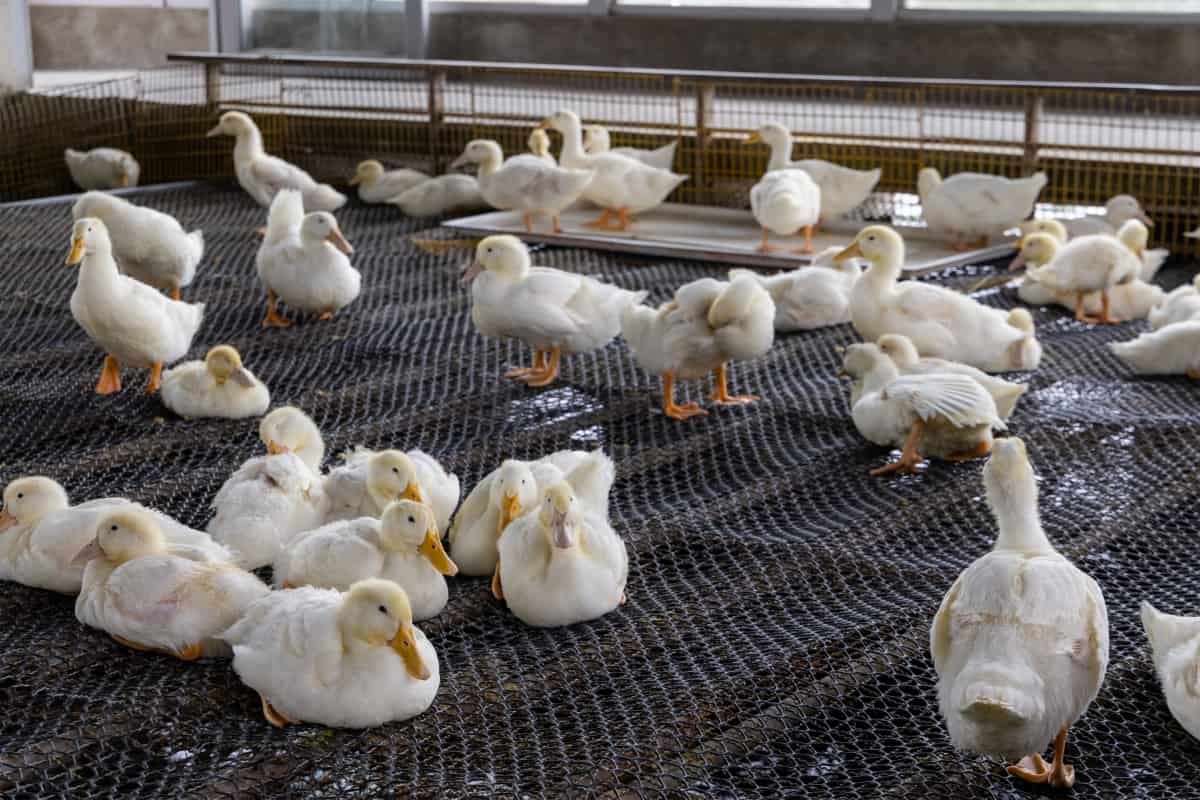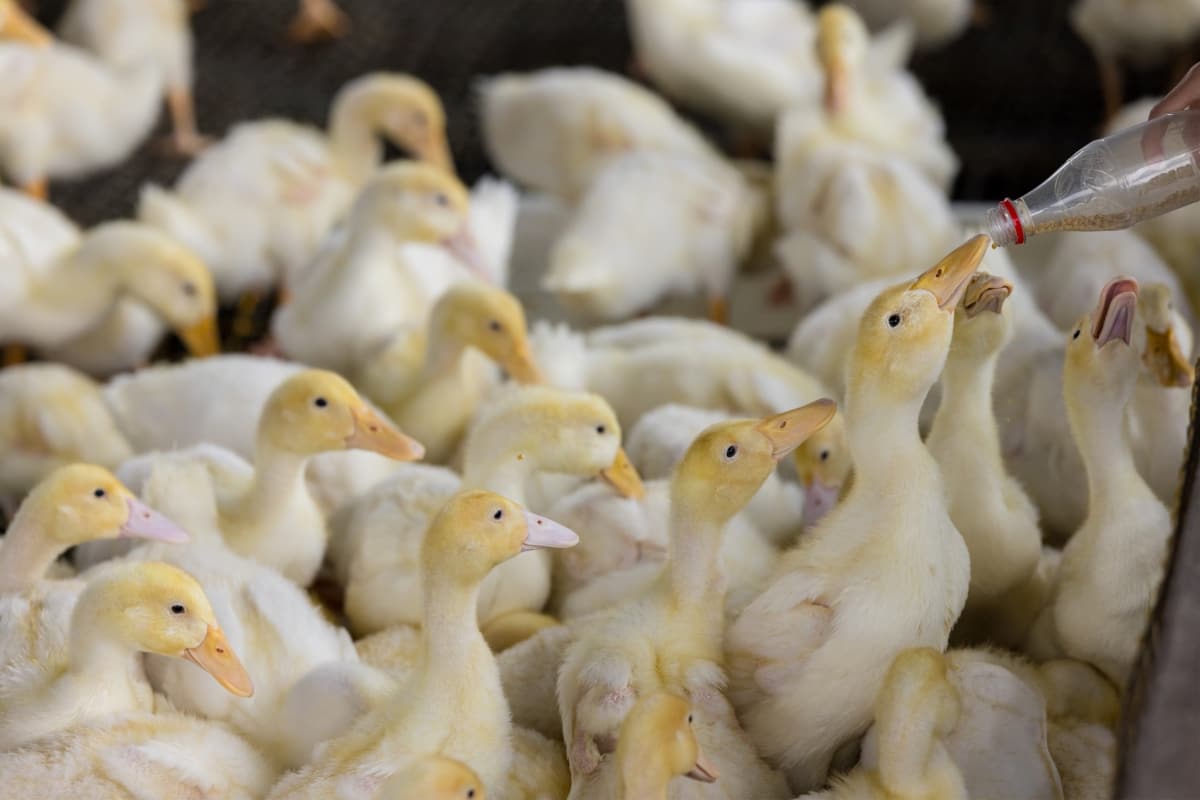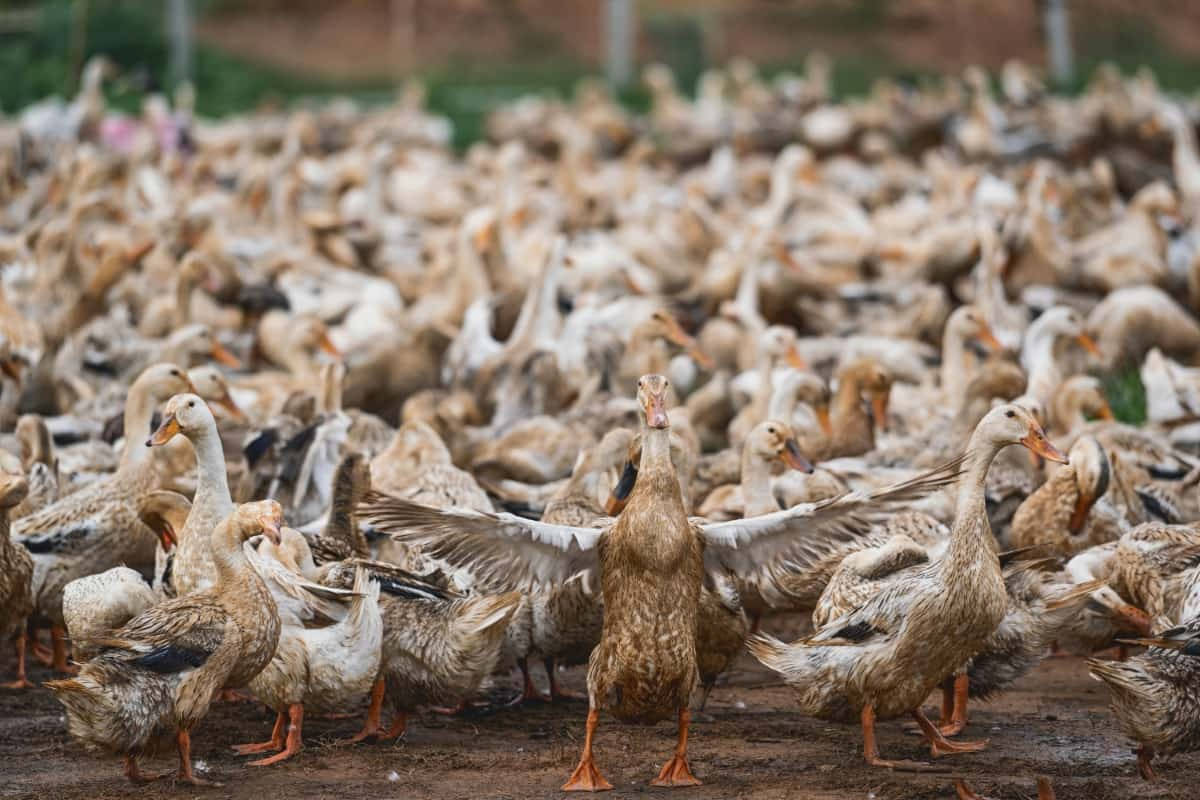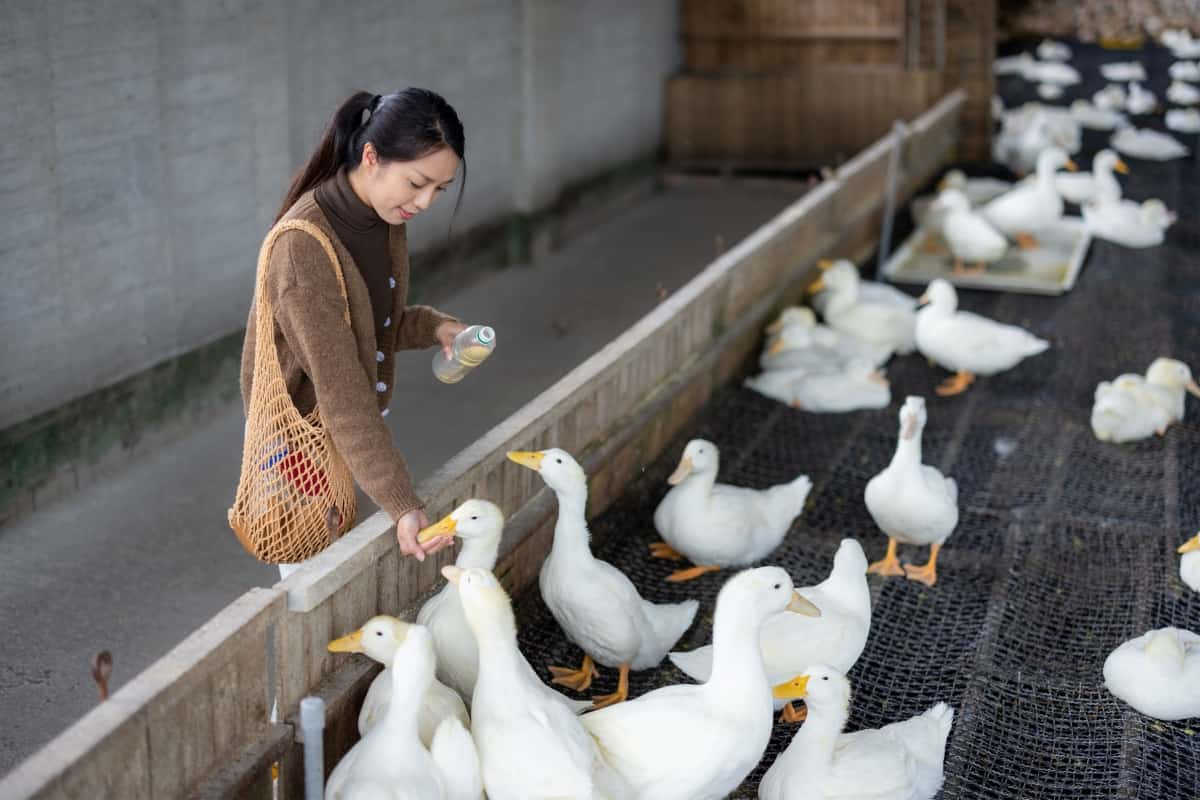Duck farming is a lucrative business opportunity for entrepreneurs. A 200 duck farming project report showcases the potential for a substantial profit. This venture, as highlighted in the duck farming project report, demands careful planning and effective execution. The duck farming business plan is crucial to ensure smooth operations and to maximize the return on investment.

It includes detailed strategies for breed selection, infrastructure, feeding, health management, and market analysis. The objective is to create a sustainable and profitable business model for duck farming that caters to the growing demand for duck products in the market.
Duck Farming Project Report
Create a Duck Farming Business Plan
A comprehensive duck farming business plan is essential for the success of a 200 duck farming project. This plan should include a clear vision, mission, and objectives of the business. It’s vital to set realistic goals and outline strategies to achieve them. A well-structured plan encompasses budget allocation, resource management, and a timeline for various phases of the project. It should address potential challenges and devise contingency plans. The business plan acts as a roadmap, guiding the farmer through each step of establishing and managing a successful duck farming business.
Market Analysis for Duck Farming Business
Understanding the market trends, customer preferences, and competition is key. Analyzing the demand for duck meat and eggs in local and broader markets helps in tailoring products to meet customer needs. Identifying potential customers, such as restaurants, supermarkets, and direct consumers, is vital. This analysis aids in strategic pricing and marketing, ensuring the profitability of the 200 duck farming project. Keeping abreast of market dynamics and consumer behavior helps in making informed decisions and adapting business strategies accordingly.
Duck Breeds and Selection for Duck Farming Business
Choosing the right duck breeds is fundamental for a profitable duck farming business. Different breeds offer various advantages in terms of egg and meat production, adaptability to environments, and resistance to diseases. Popular breeds for commercial duck farming include Pekin, Khaki Campbell, and Indian Runner. Selecting breeds based on market demand, climatic conditions, and available resources is essential. The choice of breed impacts overall productivity and profitability. Careful selection ensures a successful start and sustained growth of the duck farming business.
Infrastructure and Housing for Duck Farming Business
Proper infrastructure and housing are critical for the health and productivity of ducks in a duck farming business. The design of the duck house should provide ample space, protection from predators, and easy access to water. Adequate ventilation, lighting, and temperature control are necessary to create a comfortable environment for the ducks. The housing should be adaptable to different weather conditions and scalable as the business grows. Investing in quality infrastructure ensures the well-being of the ducks and optimizes production in the 200 duck farming project.
In case you missed it: Alabio Duck Breed: Origin, Characteristics, Price, Life Span, Appearance, and Temperament

Feeding and Nutrition in Duck Farming Business
A balanced diet ensures healthy growth, high egg production, and quality meat. The feed should include a mix of grains, proteins, vitamins, and minerals. Access to clean water is equally important. Developing a feeding schedule and monitoring the health of the ducks are essential practices. Effective feeding strategies contribute to the overall success and profitability of the 200 duck farming project.
Health Management in Duck Farming Business
Effective health management is essential in maintaining a productive and profitable duck farming business. Regular health check-ups, vaccinations, and disease prevention measures are crucial. Addressing health issues promptly and maintaining hygienic conditions reduce the risk of disease outbreaks. A well-planned health management strategy ensures the longevity and productivity of the flock. This aspect is vital for the success of a 200 duck farming project, as healthy ducks directly contribute to the business’s profitability.
Breeding and Hatching in Duck Farming Business
Breeding and hatching are critical components of a successful duck farming business, particularly in a 200 duck farming project. Effective breeding strategies involve selecting healthy, high-quality ducks with desirable traits. It’s important to maintain a balanced ratio of male and female ducks to ensure optimal breeding results.
In case you missed it: Pomeranian Duck Breed: Physical Characteristics, Temperament, Feeding, and Breeding

The hatching process requires careful monitoring of temperature and humidity conditions, especially when using incubators. Natural hatching under a broody duck can also be employed, depending on the scale and resources of the farm. Managing the breeding and hatching process efficiently leads to a healthy and productive flock, which is crucial for the sustainability and growth of the business.
Marketing Strategies for Duck Farming Business
Developing robust marketing strategies is key to the success of a duck farming business. Understanding the target market and positioning the products accordingly is essential. Utilizing both traditional and digital marketing channels can enhance the reach and visibility of the business. Creating partnerships with local businesses, restaurants, and retailers can open new markets for duck products.
Offering high-quality, fresh products with attractive packaging can appeal to health-conscious consumers. Engaging in community events and farmers’ markets can also boost local sales. Innovative and adaptive marketing strategies are vital to creating a strong market presence and driving the success of a 200-duck farming project.
Commercial Duck Farming Project Report and Financial Planning
Assumptions
- Starting with 252 Ducklings: To accommodate for any potential mortality.
- Mortality Rates Applied: Based on initial duckling count.
- Egg Production Begins Post-Growing Period: Starting after five months.
- First-Year Sales: Limited to eggs and ducks produced in the first year.
- Capital Costs Amortized Over 5 Years: Reflecting long-term investments.
- Feed Adjusted for Surviving Ducks: Post-mortality.
First Year Financials
Initial Setup and Capital Costs (Year 1)
- Shed Construction: Yearly cost of Rs 15,840 (Rs 79,200 over 5 years).
- Layer Pen Construction: Yearly cost of Rs 36,000 (Rs 180,000 over 5 years).
- Other Capital Costs: Yearly cost of Rs 28,100 (Rs 140,500 over 5 years).
- Total Capital Costs for Year 1: Rs 79,940.
Operating Costs
- Cost of Ducklings: Rs 6,552 for 252 ducklings.
- Feed for Growing Period: Rs 90,000.
- Feed for Laying Period: Rs 18,000 for 2 months.
- Insurance, Veterinary, Electricity, Labour: Rs 39,540 for the year.
- Total Operating Costs: Rs 154,092.
Revenue
- Egg Sales: Rs 600,000 (200 ducks x 300 eggs/duck x Rs 10/egg).
- Sale of Culled Ducks: Not applicable in the first year.
- Total Revenue: Rs 600,000.
Profit Calculation
- Total Costs (Capital + Operating): Rs 234,032.
- Total Revenue: Rs 600,000.
- Profit for Year 1: Rs 365,968.
- The first year shows a profit of Rs 365,968.
In case you missed it: Rouen Duck Breed: Characteristics, Temperament, Feeding, and Breeding

Conclusion
The commercial duck farming project, with an initial setup of 252 ducklings and a well-structured financial plan, demonstrates significant potential for profitability in its first year. The comprehensive approach, covering everything from infrastructure costs to operating expenses, and the detailed revenue calculations highlight a promising return on investment.
This report underscores the importance of meticulous planning and management in ensuring the success of a duck farming business. While the projected profit of Rs 365,968 in the first year is encouraging, it is important to remember that these figures are based on specific assumptions.
- Feed Your Flock for Less: Top 10 Tips to Save on Chicken Feed
- Ultimate Guide to Ossabaw Island Hog: Breeding, Raising, Diet, and Care
- Hatching Answers: The Top 10 Reasons Your Chickens Aren’t Laying Eggs
- Eggs and Economics: Breaking Down the Cost of Raising Backyard Chickens
- Defend Your Greens: Proven Methods to Keep Iguanas Out of Your Garden
- Ultimate Guide to Cinnamon Queen Chicken: A Comprehensive Guide for Beginners
- Ultimate Guide to California Tan Chicken: Breeding, Raising, Diet, Egg-Production and Care
- Ultimate Guide to Marsh Daisy Chicken: Breeding, Raising, Diet, and Care
- 10 Types of Chicken Farming Businesses You Can Start for Profits